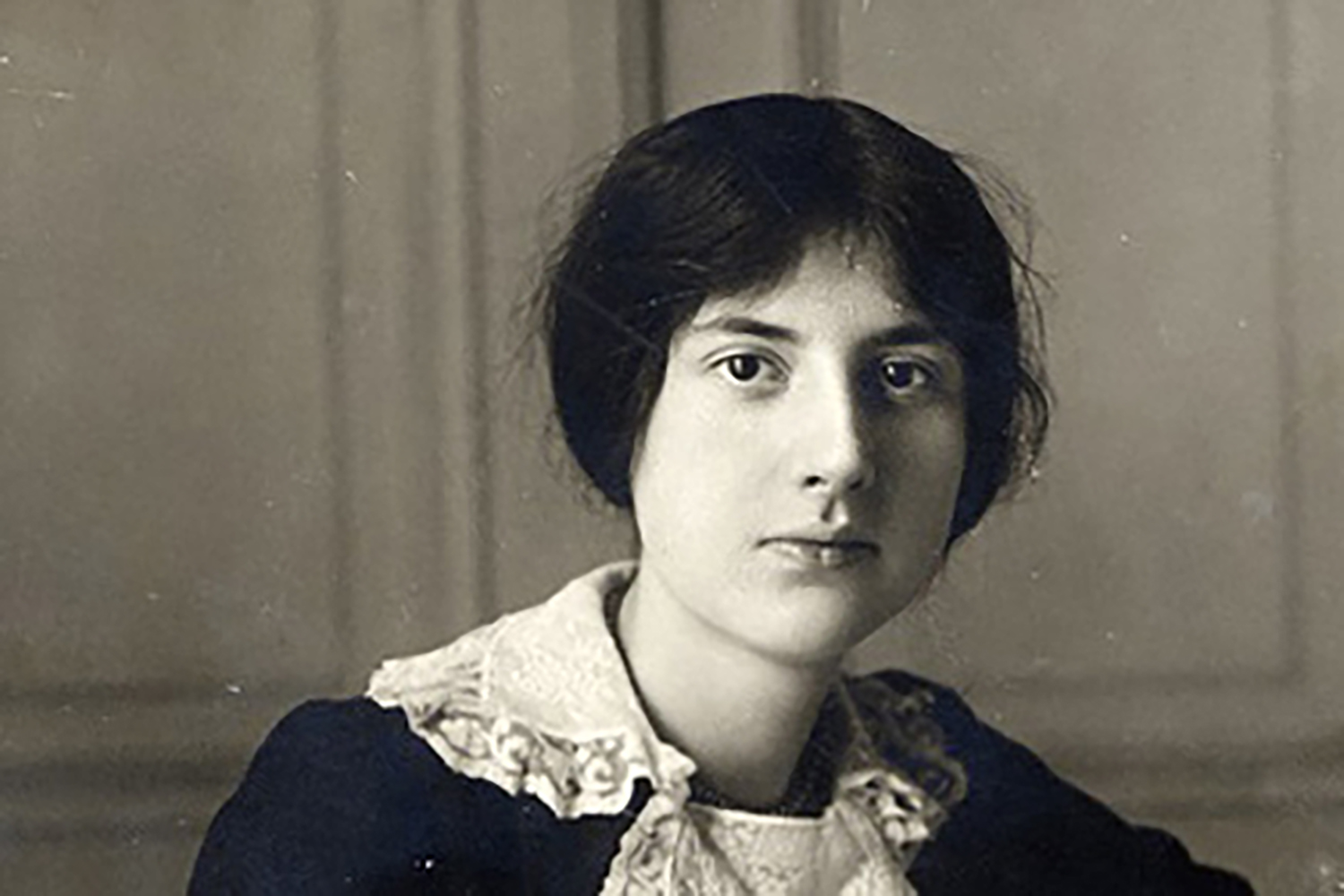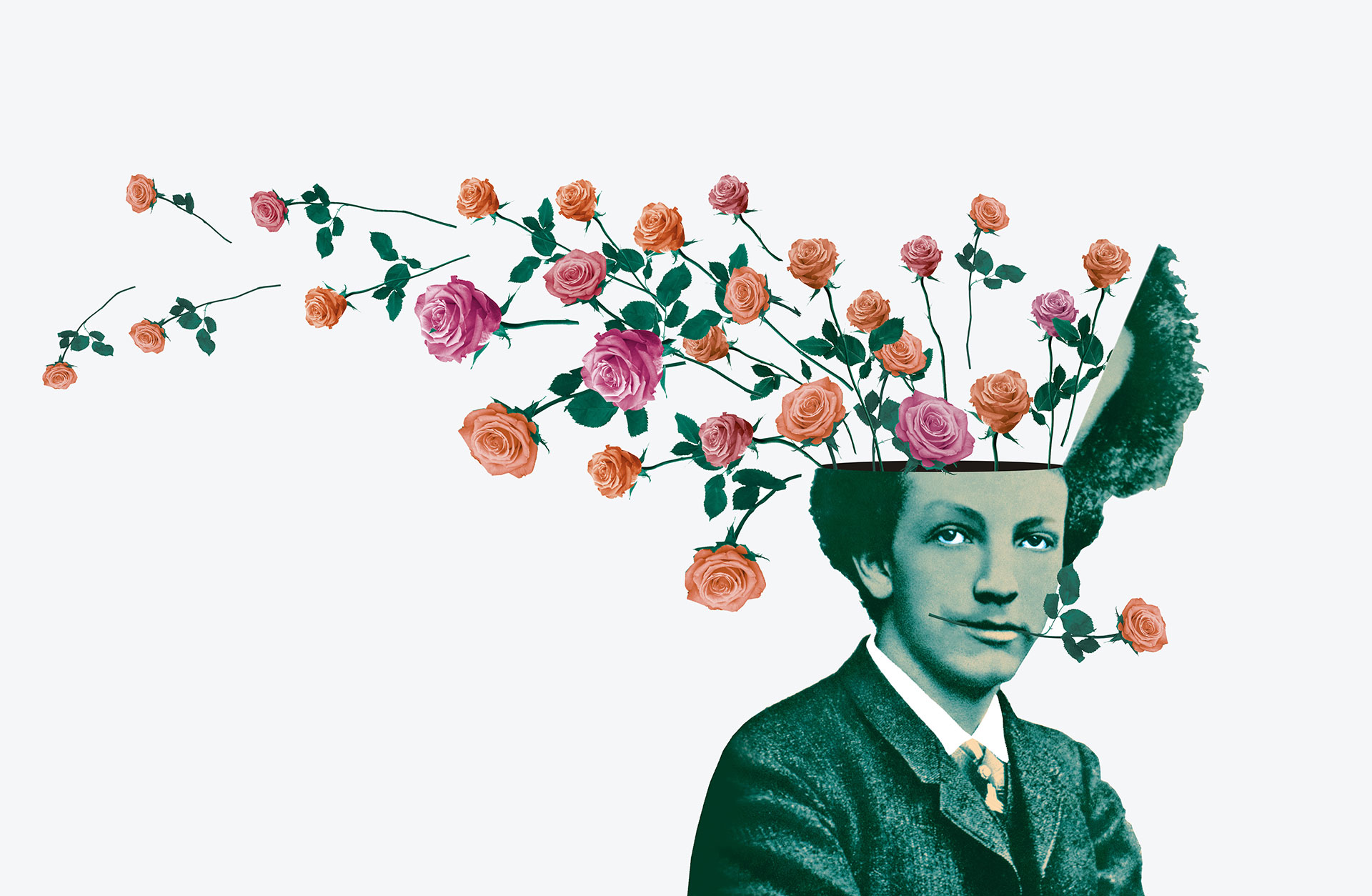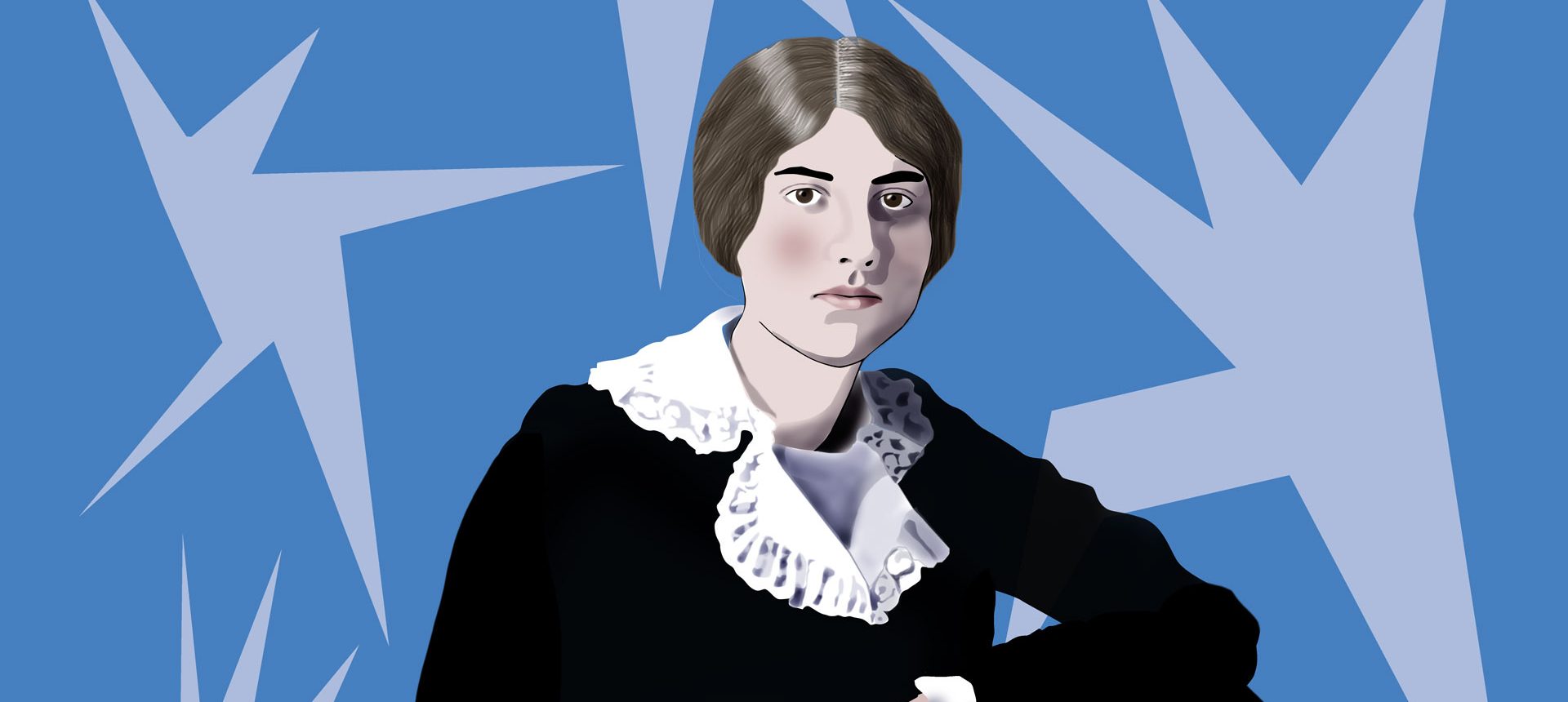Mari-Juliette Olga Boulanger was born in Paris in 1893 into a musical family with a noble Russian mother and a French father. The mother taught both Lili, who had absolute hearing, and older sister Nadia. Already as a child, Lili Boulanger got to know the Parisian musical life led by the composer Gabriel Fauré, a friend of the family and a great inspiration. At the age of 16, she began studying composition with teachers such as Georges Caussade and Paul Vidal.
She was admitted to the Paris Conservatoire at the age of 19 in 1912 and that same year entered the famous Prix de Rome competition for composers, but fell ill and had to withdraw. Competing again in 1913, she won by a landslide in the jury’s vote, becoming the first woman to win the coveted prize. Her winning composition was the one-act opera Faust et Hélène, a love drama for three voices with Wagnerian elements and perfect orchestration.

At the age of 20, Lili Boulanger was on the verge of a flourishing career as a composer. But fate wanted otherwise. As a teenager, she had suffered from Crohn’s disease, an intestinal disease that at the time was impossible to treat. She was tormented by severe bouts of illness, but nevertheless continued to compose.
After her scholarship stay in Rome, WW1 broke out and she remained with her family in Paris. In 1916 she was able to return to Rome and then began to work on the opera La Princesse Madeleine. She would never finish the opera. She was without a future, just like the young French men of the same age who fought in the First World War and who came to be called “A Lost Generation”.
More about Lili Boulanger
In the winter of 1918, she wrote one of her most famous pieces, the orchestral version of D’un matin de printemps (To a Spring Morning) which was originally composed as a piano duet. The orchestration is masterful and unexpectedly rich for someone so young. It was her last orchestral work. She was now bedridden and sister Nadia had to finish writing the last notes. On March 15, 1918, Lili Boulanger died in the family home in Mézy.
“D’un matin de Printemps is, on the whole, a Scherzo of impulsive verve, with an airy and transparent orchestration, but in the middle we see the emergence of a fierce orchestral rise that reveals the pain that lies behind this deceptive calm.” (Music critic Harry Halbreich)
Lili Boulanger’s music stands with its feet in the early French 20th century when so much happened with tonality. It is characterized by Debussy’s impressionism and is described as delicately colored, moving and devoutly religious. Her significant compositions include chamber and choral music, the orchestral works D’un matin de printemps and D’un soir triste, the cantata Hymn de Soleil and the mournful Pie Jesu for soprano, string quartet, harp and organ, which was completed on her deathbed.
The remarkable Boulanger sisters have both gone down in music history. The six-year-older Nadia lived until 1979 and became one of the most important teachers of composition in the 20th century. In 1939, Nadia created the Lili Boulanger Memorial Fund in her sister Lili’s memory, which awards prizes to talented composers. Among the winners over the years are Thea Musgrave, Wojciech Kilar and Per Nörgaard.
The memory lives on of the child prodigy who picked up the tone language of her contemporaries and created a sound for her lost generation.
Listen to her music
Let the playlist tempt you with the very best of Lili Boulanger

The composers behind the most famous masterpieces
Take the opportunity to get to know some of the composers behind the most famous classical masterpieces and listen to their music. Maybe it will be the start of a lifelong friendship.


